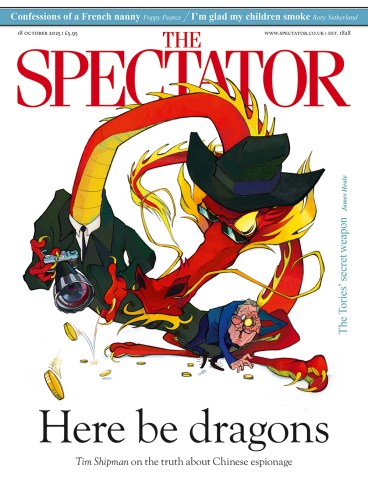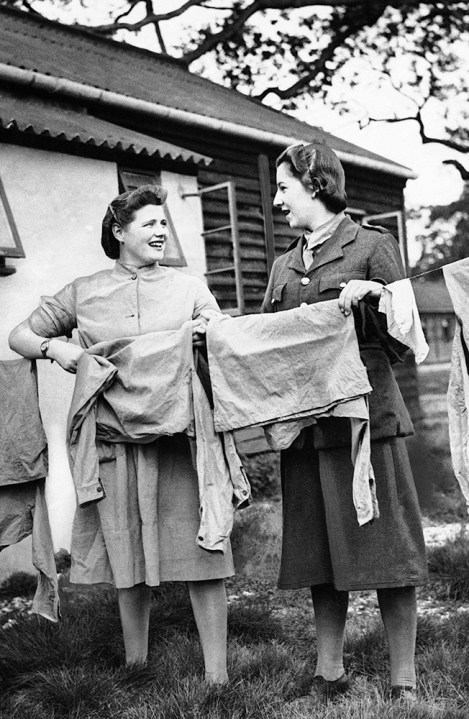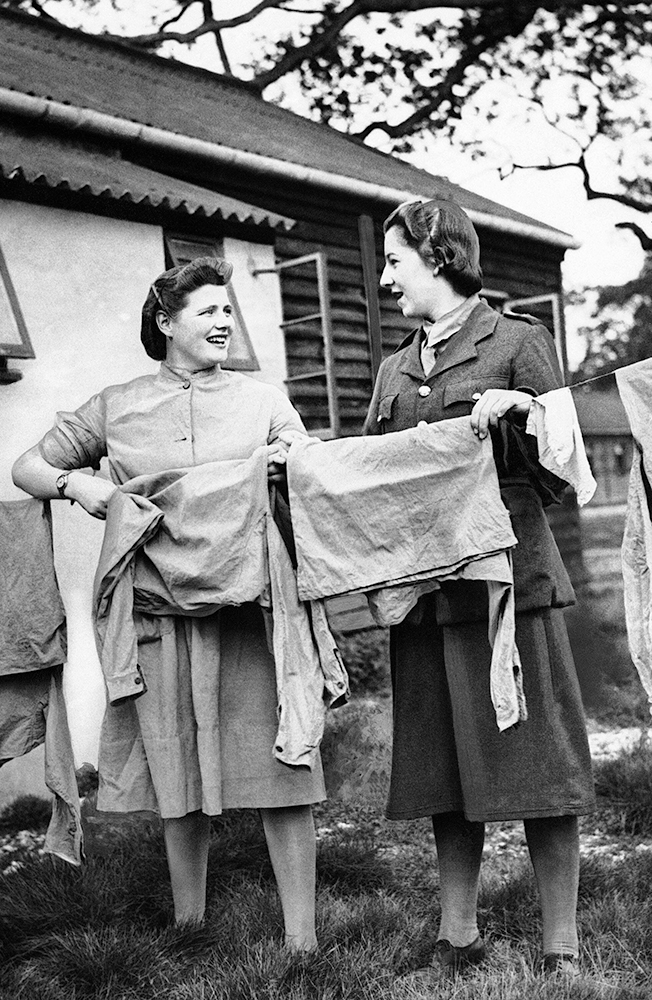
In 1949, aged 26, the bright, well-connected Judy Montagu (first cousin of Mary Churchill and friend of Princess Margaret) criss-crossed the United States on a Greyhound bus. The Greyhound Diary is a vivid and often humorous account of the three months she spent on the road.
Montagu’s life, like her diary, reflects a specific time, place and atmosphere – that of postwar optimism, the disappearing shreds of aristocratic influence and a burgeoning interest in New Deal America. She was the epitome of the socialite whose sarcasm could be wielded like a scythe. At a luncheon in the American South, she meets a woman who tells her that she had once been married to an Englishman:
‘I used to drink beer with him – I hoped it would fatten me up, you see’ (coy smirk). To my horror, I heard a languid voice I dimly recognised as my own say: ‘And it did.’
The hats at another ladies’ luncheon in South Carolina were ‘smothered in every botanical specimen imaginable’. Despite the awful food, ‘the hats nodded violently’.
The reasons for her trip were manifold. She was young and hungry for adventure after serving in the second world war as a major in gunnery. She was also encouraged to embark on this 20th-century Grand Tour by Joseph (Joe) Alsop, whom she had met at the family home in Norfolk. Isaiah Berlin, a friend of Judy’s mother, Venetia, had introduced them.
Alsop was, in Montagu’s words, the ‘King of Washington’. As a respected journalist, he co-authored a popular syndicated column in the Herald Tribune. He was related to the Roosevelts and, like Judy, was a champion of FDR’s New Deal. It was his letters of introduction that gave her access to a Who’s Who of newspapermen, politicians and entertainers. The diary floats on a sea of elegant suppers, cocktails, nightclubs, tours of hospitals, gardens, stately homes, tea with Mary Pickford in Hollywood, visits to the Astors and even a death-defying performance in a Texas rodeo.
The last is described with Montagu’s signature sangfroid: ‘Met one nice man who asked me to ride one of his horses in a rodeo – dashingly accepted and at once regretted the attempt to show off – it’ll end in tears.’ She’s grateful to be offered a hip flask of bourbon to give her courage. Of the ordeal, she writes: ‘I bounced around like a potato sack and had to cling to the saddle horn ignominiously if the horse did anything but walk. Terror of disgrace and death seized me.’ Despite the rodeo being an event of nail-biting proportions, Montagu writes with her trademark understatement:
It all ended… at 11.30. Fond farewell to the sheriff and we drove off. Stopped for a hamburger – much needed on the way home. Back about 2. One of the most enjoyable things I’ve ever done.
The diary has been painstakingly edited and annotated by her daughter, Anna Mathias, who provides context for the people Judy encounters, the places she passes through and satisfying insights into her life. In Springfield, Illinois, towards the end of her trip, Montagu meets the state governor, Adlai Stevenson. He ‘came bustling in, a smallish man with a strong face and piercing bright blue eyes surrounded by lines of great charm and humour’. We wouldn’t know much more than this if Mathias hadn’t provided us with letters between Judy and Adlai which reveal that they became lovers.
Though the diary gallops along with caustic asides and descriptions of her fellow bus passengers, landscapes, meals and hotels, there is a subtext of struggle. Mathias’s sensitive additions show another side of her mother. We are told that Venetia’s marriage to Edwin Montagu hadn’t been particularly happy. In fact, Judy’s father was not Edwin but Eric Ednam, the Earl of Dudley, who sat her down one day and announced: ‘Darling, I am your father.’
The theme of absent or remote fathers and brilliant but sometimes mercurial mothers is replayed. Mathias tells us in her afterword that in 1952 Judy gave birth to a son, Stephen, who was sent to live at the Peredur Home School in Sussex, a boarding school for ‘boys with various behavioural, health or family issues’. He died in 1968 of ‘progressive spinal muscular atrophy’. Mathias has not been able to work out who Stephen’s father was, except that he may have been ‘an American writer’.
Guilt at having to leave Stephen in care rather than look after him at home possibly led to Judy’s protracted nervous breakdown. She died of a heart attack in 1972 at the age of 49, when her daughter was only nine years old. Mathias writes:
Judy’s friends were my saving grace, in that they embraced me and swept me though my childhood such that I barely felt bereaved until later – as an adult, having to work out who I was and how my life would play out.
The Greyhound Diary invites the reader to think about the narrative thrust, the accidents and incidents that accrete and shape life. The quintessentially American transcendentalist Ralph Waldo Emerson wrote that a human being’s ‘power consists in the multitude of his affinities… A man is a bundle of relations, a knot of roots, whose flower and fruitage is the world’. Judy and the world described in her diary may no longer exist, but Mathias has given us a record of a life whose flowers and fruitage are well worth visiting.









Comments